As I share this reflection with the world on my twenty-second sobriety birthday, I recognize that many folks in the trauma recovery movement may take issue with it. I’ve/we’ve been delighted to see increasing attention paid to trauma in the mental health and addiction fields. And in many circumstances the focus on trauma seems to only provide an explanation for trauma behavior without truly suggesting positive steps for action. I’ve seen trauma used as an excuse that keeps people stuck so many times. Even though 12 step recovery can be riddled with problems, many of which I address in the Trauma and the 12 Steps work, I remain grateful to my early exposure to the program and the necessary lesson it taught me: the people who traumatized or wronged me may never apologize, may never see the error of their ways, and may never make restitution. I cannot rely on people admitting their guilt, apologizing, or seeking to make things better in order to heal. Healing is my responsibility.
I share this lesson that I believe was the gamechanger in my/our recovery, acknowledging our privilege as a white, well-educated woman who has largely lived without economic struggle. So if what I have to share in this personal reflection doesn’t land for you based on your identities and life experience, I get it. Take what you like and leave the rest; or leave it all. What I am sharing here worked for me and I’m asking readers to consider whether or not it might work for them in addressing what troubles them.
In the early days of seeking help for our mental health and addiction concerns, the full story of which can be found in Trauma and the 12 Steps and in the upcoming You Lied to Me About God: A Memoir, we were hell bent on trying to convince other people how much they had wronged us. Especially our parents and the man who broke our heart. To quote a line I heard once in an Al-Anon meeting, our “explaining muscle” was overworked—if only you would all just “get me” then I’ll be okay. If you can admit that I am right and you are wrong, then I wouldn’t have to drink again. If you would all just change, then I would be okay. And the more I swirled around that spiral, even though I couldn’t see it at the time, the worse I felt.
During an Alcoholics Anonymous (AA) meeting one night in Bosnia-Hercegovina, many months into our recovery journey yet likely having clocked just a few months of continuous sobriety, it hit us like a ton of bricks; or a flash of enlightened clarity. The acceptance passage of the Big Book Alcoholics Anonymous was the topic (p. 417 in the 4th edition) and we chewed over it all, especially the line acceptance is the answer to all of my problems today. During that meeting our first sponsor Janet made it very clear to us that accepting something does NOT mean that we have to like it or say that it’s okay. Acceptance does not automatically mean forgiveness or even pardoning. This nuance is critical for survivors of trauma in approaching this 12 step teaching, and it was key in finally helping me to get it. At that meeting it became so clear—they may never change. They may never see my point of view or admit that they were wrong. I may never feel validated by them or get whatever kind of justice I was seeking during those excessive bouts of overexplaining. And that’s okay. I have to proceed with my life as if none of that will ever happen.
And when I accepted that, it helped me to see that all I could change was myself (and my internal system, hence the “we” pronouns you see us use sometimes). Yes, much of the healing work has meant examining, calling out, and feeling through the damage that happened. Yet getting an apology was never required for healing. Of course apologies are nice when they happen, and being validated by people who once shamed me can be helpful, evening getting them has been few and far between. From that moment at the meeting, they were never the requirement for me creating a better life for myself.
I continue to see many people around me—friends, family members, people I’ve worked with, and people we’ve connected with online in community support spaces struggle with symptoms or moving on with life. Not always, yet often, I observe this tendency to wait for someone else to admit their wrongs or to hold out for some kind of justice to be served. While it is certainly not wrong to want that, I get concerned (admittedly because of my own experience) when I see people waiting on that.
“When [this] happens, then I can heal. Then I will be better.”
If I had stayed in that line of thinking a year or two longer, I would have been dead before I reached twenty-five. And I don’t know why it came to me so suddenly the night it did at the recovery meeting. Maybe it was what spiritual people call “grace,” perhaps it was just good timing, or it could have been that a few years of trying to heal that way just exhausted me. And in my total depletion and surrender, the answer arrived.
Whether or not it’s the healthiest strategy remains to be seen, yet a common line that fuels me today is, “I will not let the fuckers win.” This doesn’t mean I have to defeat them, out argue them or otherwise take them down, in my writing, in a court scenario, or in the forum of public opinion. My revenge is to continue living as adaptive a life as possible. Because even though I am able to see where the patterns of trauma can still show up in my/our life, staying alive, pursuing health, and embracing what I can do is how I seek and receive justice for myself.
In the early days of my EMDR training I encountered a quote by Jean-Paul Sartre that EMDR founder Dr. Francine Shapiro often quoted: Freedom is what you do with what has been done to you. I acknowledge that Sartre is a problematic figure on many levels, yet I cannot deny the power that his words have had on me through these years of my ongoing recovery journey. While there are so many ways to define recovery, freedom, and healing, for me it has meant taking responsibility for my own healing through the power of acceptance.

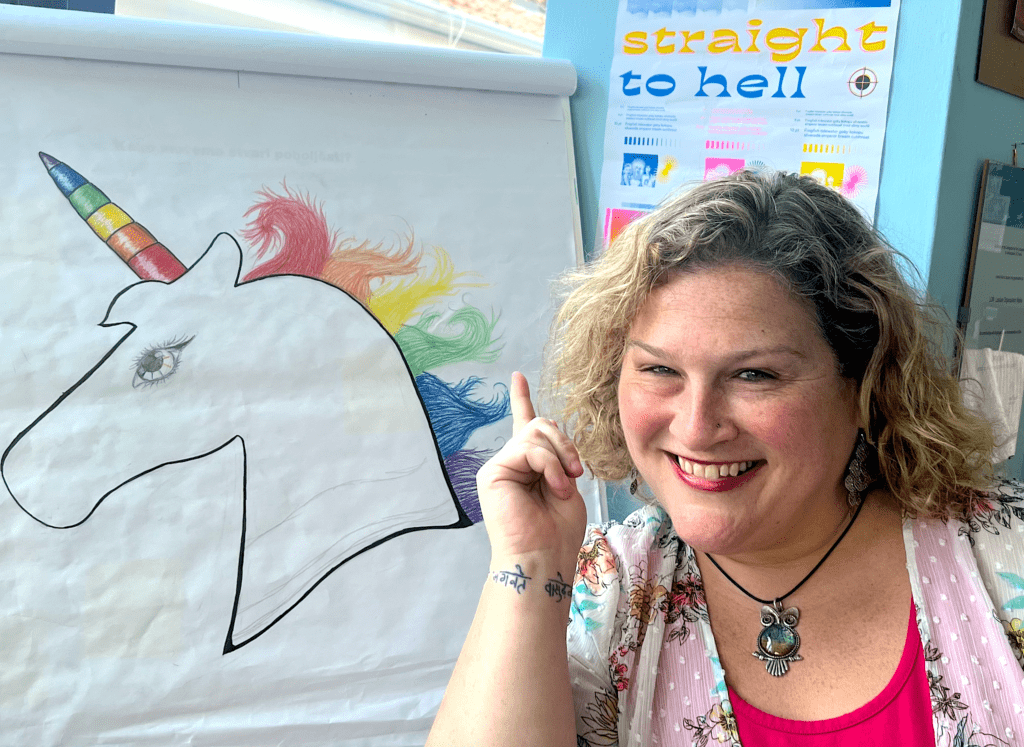

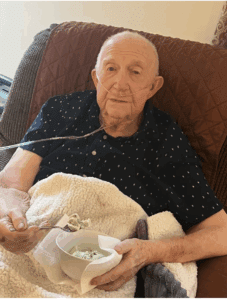
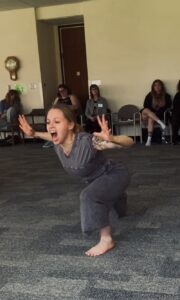

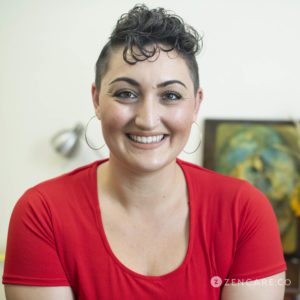






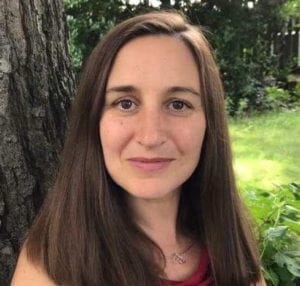

One Response
Thanks so much for sharing this. It was right on time. I’ve been feeling imprisoned and haven’t made it to prison yet. Almost 3 years ago I got arrested and it’s really messed up. I have lost trust in close friends and relatives. I have severe anxiety around people. I am facing 25-:30 years and I am angry over it. It’s not fair. I ended up in DBT then EMDR. My life has changed. I definitely focus on being in the here and now and enjoying the time I do have at home with family. Radically accepting the situation sometimes several times a day is what got me to the point I am today. I am so glad someone was kind enough to care when I was at an all low wanting to not exist. Your revenge approach is awesome! I will not let the fuckers win! Thanks so much. I am gonna marinate on those words and sounds like I’ll be writing them on affirmation cards. Love them.
Although I loved what I just wrote I had to read your post one more time. I mean woman this is feeding my soul Especially with the 4th of July approaching freedom is something to be cherished. I told a client in a DBT skills training group that I help co-lead I told him that when it comes to emotion mind, reasonable mind, and wise mind-I will ask myself what are the cost and benefits in this situation? When I was in emotion mind and not where I needed to be it cost me big time. I made an impulsive decision mostly out of anger that changed my life. I am suffering the consequences and not even the ones I have to face in a courtroom. My mental health depleted and can still easily fall into depression if I don’t use wise mind, and use these skills. Relationships that are dear to me are severed still. What happened to me crushed me. I never had central nervous system problems before. Now I have to be skillful and breathe because thinking about 25 years is heavy. Accepting what I did do which was to make a bad decision and to own up to that but not fully knowing what was really happening has helped me. Yes I may deserve some time and I have been on strict house arrest cannot go anywhere has been debilitating at times. I miss family events, I get left behind and that creates more isolation. It’s just tough but I volunteer 3 nights co-leading DBT skills training groups. I tell everyone I’m in the intensive DBT program. I get to be real and raw about my journey. If that doesn’t give people hope I don’t know what will. I know helping others in the struggle and being beside them even if it is virtual I am blessed. It has a been a soothing balm to my hardened heart. It makes it beat still. I have purpose even though I made that bad choice. I had to learn and practice the nonThe important choice was to get sober, stay clean, and fight for what is right. I have thought about this situation up, down, round and round. Dialectical thinking is effective for me. I am going through hell and I am living a life worth living. I am hanging on and riding the wave. Freedom is definitely what you do with what has been done to you..Our stories matter you never know how it will impact someone and drive their mind to a safe place. Thank you for sharing and letting me get to channel some of my pain. Just for today we will give away what he have in order to keep it! ❤️❤️❤️❤️🥰. No more 🏃♀️🥊❄️